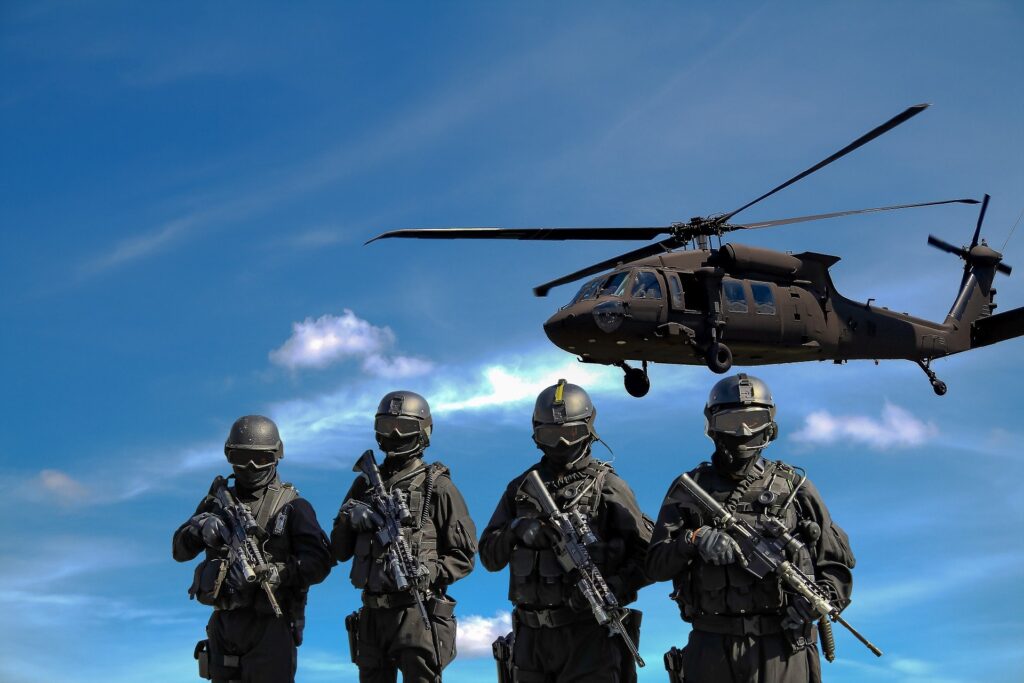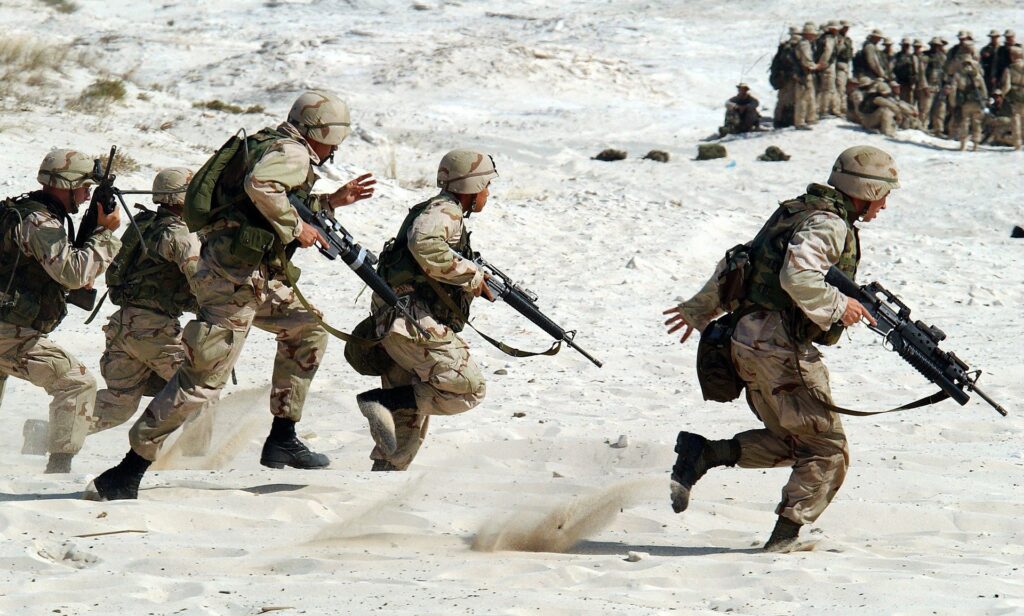Special Forces training is one of the most grueling programs in the entire world. It can take anywhere between 56 and 95 weeks, and you’ll have to endure extreme physical and mental challenges. However, once you finish your training, you’ll be part of the A-Team, which is a huge honor.
Even though the Special Forces training is so challenging, becoming a Special Forces Soldier is a once-in-a-lifetime achievement. Here’s how you can do that.
What You Should Know Before Starting Special Forces Training
If there’s one thing to know about Special Forces training is that it’s definitely not for everyone. It takes a lot of commitment and willpower to finish a program like this, not to mention stamina.
The first thing you’ll need to have is a really solid running base. You have to prepare both your lungs and your feet so that you can run 25–30 miles (at least) per week, with your backpack on.
You should also have a strong lower back, which will help you carry logs, backpacks, and do injured man drills. To achieve this, you can start doing deadlifts, fireman carries, body drags, and farmer walks.
As far as the physical preparation goes, you should also do a lot of swimming, as well as ruck running, and land navigation.
But the bottom line is, even if you have all of this training and are as fit as a fiddle, it’ll mean nothing unless you check your attitude at the door. Special Forces are all about teamwork, and they don’t tolerate those who lack respect for their teammates or instructors.
The Preparation Course
Before you can attend Special Forces Assessment and Selection (SFAS), you first have to complete the Preparation Course (SFPC). It is a 19-day course, which will, for the most part, test your physical preparedness.
In addition to your fitness, you’ll also have to showcase your land navigation and map reading. Since these are some of the most important skills you can have in the Special Force, make sure that you’re prepared well for the tests.
Assessment and Selection
Once you pass the SFPC, it’s time for the Special Forces Assessment and Selection (SFAS). At this point, your survival skills will be put to the ultimate test, and your physical and mental training will be taken to the next level.
The SFAS is technically the first phase of your Special Forces training, which will then continue to the qualification course (SFQC). There are two ways to start your SFAS, depending on whether or not you have a military background.
If you have one, you can volunteer at the SFAS with an enlisted rank of E-3 or higher. However, if you don’t, you’ll have to do an Initial Accession, and the first step would be attending the Infantry One Station Unit Training, Airborne School, and a prep course.
Qualification Course
The Special Forces Qualification Course (SFQC) or Q- training, consists of six deliberate phases, which can last between 56 and 95 weeks. Each phase is specifically designed to introduce and foster your expertise in these areas:
- Small unit tactics
- Combat marksmanship
- Advanced Special Forces tactics
- Military Occupational tactics
- Military free fall
- Unconventional warfare
- Language and culture
Now, we’re going to break down all these areas, and see what they look like and entail phase by phase.
1. Phase I — Special Forces Orientation Course (SFOC)
The orientation course is basically a one-week introduction into what the fundamental Special Forces missions and doctrines. Phase I will teach trainees about the Mission Command, and introduce them to SF history, the USASOC Strategy, as well as unconventional warfare.
2. Phase II — MOS and SERE Training
Once you move on to Phase II, you will be assigned a Special Forces Military Occupational Specialty (MOS). Then, you will start rigorously training for your new specialty for about 13 weeks. During your training, you will cover all SF common tasks, interagency operations, as well as Advanced Special Operations Techniques.
You’ll also learn SERE exercises, which include:
- Survival
- Evasion
- Resistance
- Escape
3. Phase III — Tactical Skills
The 7 week long tactics phase will prepare SF trainees for drills and teach them countless new skills. Some of the most prominent ones include urban operations, as well as counterinsurgency. At this stage of the training, you can also expect to learn more about advanced marksmanship, live-fire maneuvers, and sensitive site exploitation.
4. Phase IV — Collective Training (Robin Sage)
Phase IV, also known as Robin Sage, is essentially the litmus test for all trainees who are hoping to earn the Green Beret. You will be put in a situation that will closely resemble real-life scenarios, and expected to work with your time the entire team.
All the candidates are divided into squads, inserted into a fictional country, which is struggling with political unrest. The trainees have to navigate the entire region, which spans several counties in North Carolina and complete their mission.
5. Phase V — Regimental First Formation
When you get to Phase V, all of the fieldwork that you’ve been doing so far stops, and you move onto a classroom. The Special Forces put a strong emphasis on fine-tuning different languages, which it assigns to all the candidates. Some of the potential languages you’ll be expected to learn/perfect are:
- French
- Russian
- Spanish
- Arabic
- Chinese Mandarin
- Persian Farsi
- Tagalog
- Levantine
- Thai
- Indonesian Bahasa
Phase V is also really important because it puts an emphasis on the ceremony where the trainees put on the Special Forces and Green Beret Tabs for the first time.
6. Phase VI — Graduation
By the time you get to Phase VI, you’ll have completed all of your major training and work. Then, at Phase VI, which is the graduation stage, you’ll be involved in a week-long out-processing. After that, you’ll officially receive your Green Beret, and become a Special Forces Soldier.
To Sum up
At this point, one thing is for certain — Special Forces training is not for the faint of heart. The long and exhaustive process will test your abilities to the maximum, and only the strongest, most resilient people will complete the training. However, once you do, you become a Special Forces Soldier, which is a huge honor.
If you’re still in the preparation process and want to put your best foot forward, we want to help. Sign up for our newsletter, and you’ll receive the best tips on training, improving your skills, and so much more!







